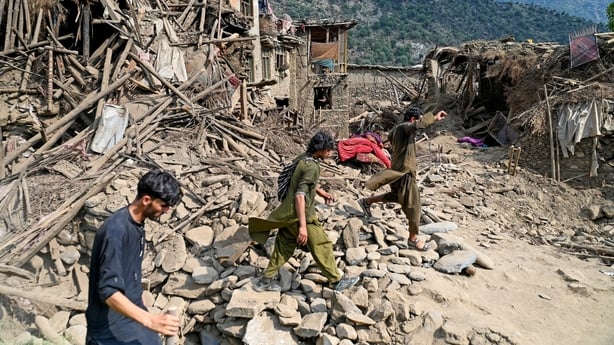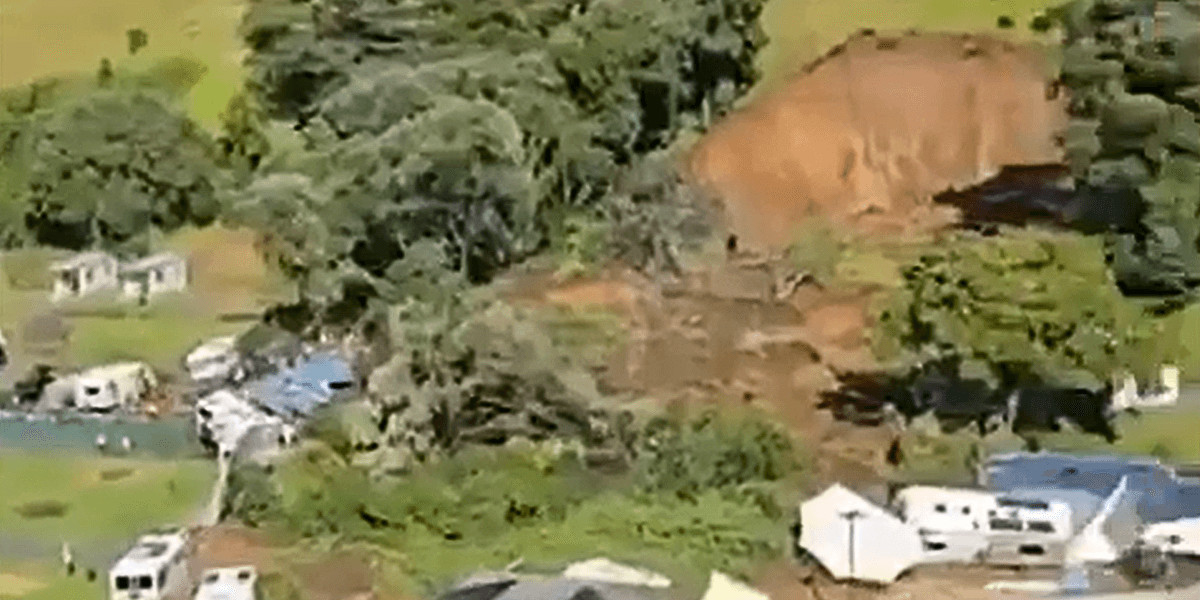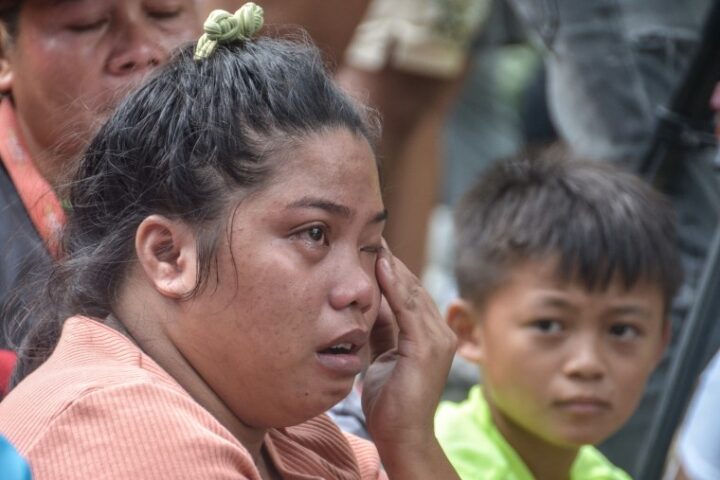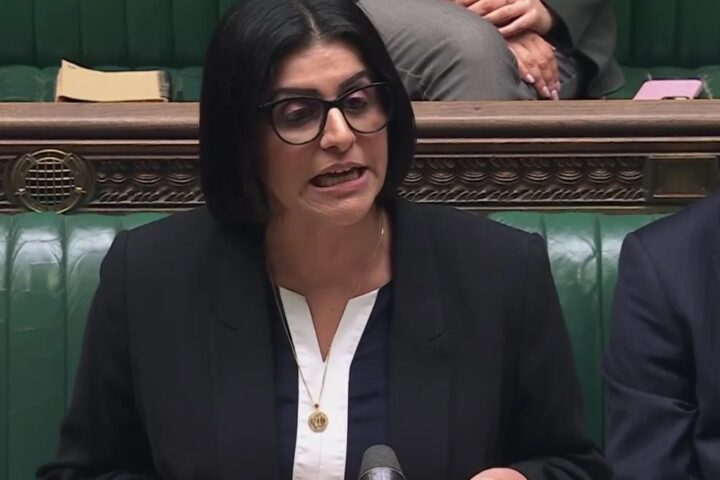An earthquake of magnitude 5.5 hit southeastern Afghanistan, sparking fears of further damage and destruction almost two days after a quake of magnitude 6.0 killed more than 1,400 people and injured thousands more in the same region.
The quake occurred at a relatively shallow depth of 10km, the same as the one that struck at midnight on Sunday.
It was one of Afghanistan’s worst quakes in years, flattening houses in remote villages.
It was unclear immediately how much damage the new earthquake had caused.
The difficult terrain has badly hindered rescue workers’ relief efforts in the isolated villages of the mountainous region.
At least 1,411 people are known to have died so far, 3,124 have been injured and more than 5,400 houses destroyed, Taliban administration spokesperson Zabihullah Mujahid said.
More people are feared trapped under rubble, the Afghan Red Crescent Society said, a humanitarian group working in the region.
The UN coordinator in Afghanistan said the death toll was sure to rise further.
Afghanistan is prone to deadly earthquakes, particularly in the Hindu Kush mountain range, where the Indian and Eurasian tectonic plates meet.
The eastern provinces of Kunar and Nangarhar were worst hit in Sunday night’s earthquake.
An infographic image shows where the 6.0 magnitude struck in Afghanistan
Mountainous terrain and inclement weather have hindered rescuers reaching isolated areas along the Pakistani border where the quake flattened mudbrick homes.
Gaining access for vehicles on the narrow mountain roads is the main obstacle for relief work, said Mr Ehsan, adding machinery was being brought in to clear roads of debris.
Today, a line of ambulances was on the damaged mountain road trying to reach Kunar villages, as helicopters flew in, bringing aid supplies and taking the injured to hospitals, according to a Reuters witness.
Some of those injured have been transferred to hospitals in Kabul and the adjacent province of Nangarhar, said Ehsanullah Ehsan, the Afghan Red Crescent’s provincial head of disaster management.
Men walk past houses destroyed in a 6 magnitude earthquake in Afghanistan
Afghans walk past damaged buildings destroyed in the earthquake
An aerial photograph shows damaged houses following the 6 magnitude earthquake in Afghanistan
Taliban soldiers were deployed in the area, providing help and security.
The disaster has further stretched the war-torn nation’s Taliban administration, already grappling with a sharp drop in foreign aid and deportations of hundreds of thousands of Afghans by neighbouring countries.
“National and international organisations are present in the area, have organised their assistance, and, God willing, aid will be distributed in an orderly manner,” Mr Ehsan said.
The European Union said it was sending 130 tonnes of emergency supplies and unlocking €1m to help victims.
The EU said that it was flying in the aid – including tents, clothes and medical items – on two special flights scheduled to arrive in Kabul this week.
The new aid comes on top of some €160m in aid the EU has allocated to humanitarian organisations in Afghanistan this year.
Rescue teams and authorities are trying to dispose of animal carcasses quickly so as to minimise the risk of contamination to water resources, a UN official has said.
“Damaged roads, ongoing aftershocks, and remote locations of many villages severely impede the delivery of aid,” the World Health Organization said in a situation update, adding that over 12,000 people had been affected by the quake.
“The pre-earthquake fragility of the health system means local capacity is overwhelmed, creating total dependence on external actors,” the update added.
Afghanistan is prone to deadly earthquakes, particularly in the Hindu Kush mountain range, where the Indian and Eurasian tectonic plates meet.
A 6.1-magnitude earthquake that killed 1,000 people in the eastern region in 2022 was the first major natural disaster faced by the Taliban government.
Aid group facing ‘challenges’ when trying to help women
Afghan women and their children walking through a rocky area in Kunar after the earquake.
Afghanistan’s Country Director for Concern said restrictions regarding women have ‘created challenges’
The Afghanistan Country Director for Concern Worldwide said the organisation must make sure, due to Taliban restrictions and culture challenges, that women and girls have access to the group’s deliveries.
The Taliban government remains largely isolated on the global stage over restrictions imposed under their severe interpretation of Islamic law, targeting women in particular.
Women and girls are banned from most education and work, as well as parks, gyms and travelling without a male guardian.
Shahzad Jamil said he “cannot rule out the challenges” that could prevent Concern from reaching “a certain level” of women and girls in the quake-hit areas.
“For instance, we already have a shortage of female staff in our teams due to these restrictions,” he said.
Speaking on RTÉ’s Morning Ireland, Mr Jamil said it has “become almost impossible to go to the field” to interview women and girls for the organisation’s male staff, adding “that’s created challenges for us to understand even in the first place what is the need”.
“So that, somehow, systematically, will prevent and will create difficulties and barriers for us to have access to all the women and girls that will be in desperate of need of support,” he added.
Regarding rescue operations, the Afghanistan Country Director for Concern said teams are facing huge difficulties when trying to get to the remote areas devastated by the earthquake.
Mr Jamil said roads in Kunar were already in bad condition, but landslides have meant that rescuers cannot get through.
He said any survivors are in desperate need of support, food and shelter, describing the situation as “a disaster within disaster”.
He said there are also returning refugees from Pakistan who are adding to the issues that Afghanistan is trying to cope with.
He added that funding for the country had “already depleted”.
“The UN and international aid organisations have already been struggling to prioritise what we can do with the remaining amount of depleted funding in this situation,” he said.
“I’m not seeing or hearing anything that will be promising enough to deal with the magnitude of crisis within crisis that we are dealing with,” he added.
Mr Jamil said he is “sceptical about the situation in regards to more funding, but we keep doing our work and we keep doing our advocacy towards what is needed here”.














